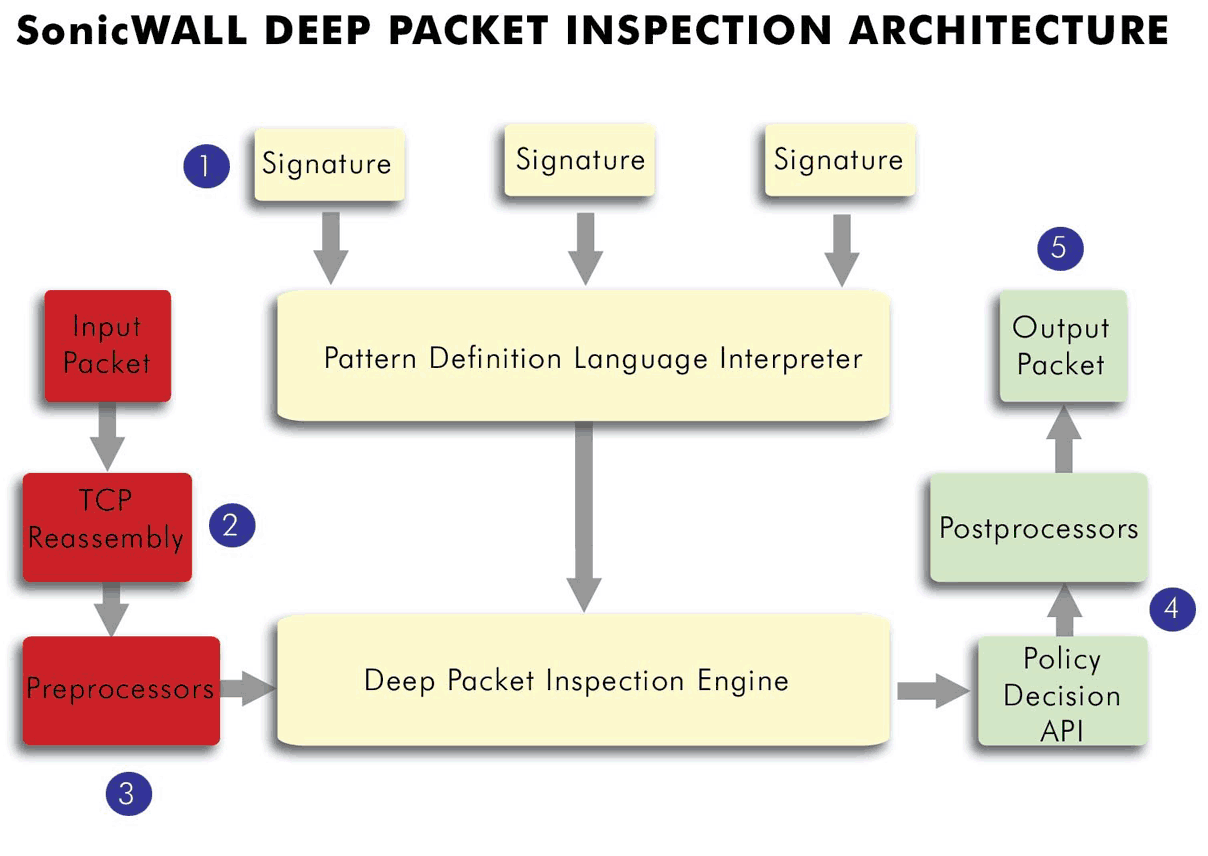|
•
|
Stateful Packet Inspection - looking at the header of the packet to control access based on port, protocol, and IP address.
|
|
•
|
Deep Packet Inspection - looking at the data portion of the packet. Enables the firewall to investigate farther into the protocol to examine information at the application layer and defend against attacks targeting application vulnerabilities.
|
|
•
|
Intrusion Detection - a process of identifying and flagging malicious activity aimed at information technology.
|
|
•
|
False Positive - a falsely identified attack traffic pattern.
|
|
•
|
Intrusion Prevention - finding anomalies and malicious activity in traffic and reacting to it.
|
|
•
|
Signature - code written to detect and prevent intrusions, worms, application exploits, and Peer-to-Peer and Instant Messaging traffic.
|
